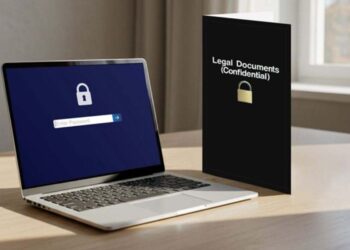The lattice of legalities that overlay the mobile health tech scene is intricate to the point of being intimidating, particularly from an outsider’s perspective. This means that developers and healthcare providers must be as astute in law as they are in technology, or else risk the wrath of regulators. Data privacy, app certification, and liability are significant hurdles with real-world implications in this context.
Luckily, there are plenty of strategies which exist to overcome the uphill struggle involved in breaking into this market. So, here’s a look at the best ways to work through each with aplomb, rather than apprehension.
Data Privacy Under HIPAA
Protecting patient information in mobile health is both ethically necessary and legally enforceable. Unfortunately, research reveals that 45% of mobile health apps don’t encrypt communications, and 23% transmit private info over unsecured connections. Here’s how to avoid this eventuality:
- Comprehensive Risk Assessment: Regularly evaluate where and how data might be compromised.
- Encryption Excellence: Ensure end-to-end encryption for data, both at rest and in transit.
- Access Control Tactics: Implement strict authentication measures to limit access to sensitive information.
Developers can confront HIPAA requirements head-on by viewing compliance not as a hurdle but as an integral component of user trust and app success.
Considering Certification
Obtaining necessary certifications is another facet of making health-focused mobile apps. And yet with more than 320,000 examples available to download, according to the BMJ, around 11% are put together with low or no-code platforms, meaning that there’s often a gap between what an app can deliver, and what certification requires from a compliance perspective. Here’s what it takes to sidestep potential issues here:
- Understanding Regulations: Get to grips with FDA, CE, and other relevant guidelines for medical apps.
- Documentation Diligence: Maintain thorough records of your app’s development process and data safety protocols.
- Expert Consultations: Engage with legal experts specializing in health technology.
Taking inspiration from advanced mobile EHR platforms like DrChrono is a good move, since it lets you see how certification can be applied in a practical manner, without compromising the quality of the user experience – and in fact, can help with enhancing UX.
Looking at Liability and Accuracy
When an app’s advice goes awry, the question of who is liable looms large. And while data from Accenture suggests that apps can cut ER visits by 30%, without accuracy, the benefits can be counterbalanced by pitfalls. Here’s how to avoid this:
- Planned Precision: Invest in rigorous testing to validate the app’s recommendations and functionality.
- Clear Disclaimers: Communicate the app’s scope clearly to manage expectations and legal exposure.
- Regular Updates: Keep content and algorithms up-to-date with current medical standards and research.
Liability need not be a deal-breaker, in spite of its complexity when tackling personal injury claims as well as healthcare app development; with thoughtful design and clear communication, you can strike a balance between innovative service and legal prudence.
Guaranteeing Patient Consent
Securing digital consent is as critical online as it is in the exam room, and while the majority of people are happy to share info, they need to know that it’s being handled with appropriate care. Here’s how to get that consent, and ask for it unambiguously:
- Informed Consent Interfaces: Develop clear, user-friendly pathways for patients to grant permission within your app.
- Dynamic Documentation: Enable easy access and updates to consent documents as regulations and treatments evolve.
- Audit Trails: Implement robust systems that track and verify each patient’s consent status.
It’s wise to empower patients with control over their health data, as transparent practices foster trust, which is indispensable in this sector.
Wrapping Up
All apps are subject to certain legal requirements, but since these really ramp up in a healthcare context, you need to be on the ball from the beginning of the development cycle, whether your end product is intended for patients or practitioners.










